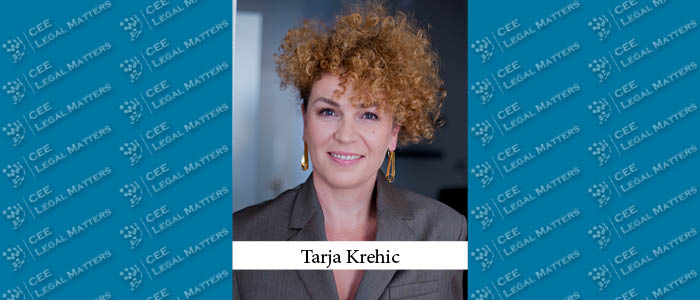New amendments entered into force in relation to the Croatian land registry legislation.
This article will touch upon the three most interesting amendments from the authors’ point of view: (i) documents based on which registration is sought must be in typewritten form, (ii) applications for land registry entries can only be submitted electronically by attorneys and notaries, and (iii) registration application based on a priority rank annotation can only be submitted by notaries and by the placement of the original decision in notary’s escrow.
In Croatia, land registers are public records of the legal status of real properties. All property rights (ownership, easement, building right, servitude, and mortgage) and other rights or facts with respect to a certain real property are entered in the land registry. The land registry is regulated by the framework Land Registry Act. The Act entered into force in 2019 and was amended in 2022. The new amendments entered into force on 10 November 2022 and 10 February 2023, respectively.
According to one of the amendments, all documents dated 10 November 2022 or later will have to be in typewritten form (e.g., written or typed using a computer) in order for the court to grant registration of a certain property right. For example, for registration of ownership to be granted, the applicant will have to execute a sale and purchase agreement that has been written on a computer. The applicant will no longer be able to write an agreement by hand or fill in a standard template published in the Official Gazette, and then request registration based on such an agreement. While it is not standard practice in conveyancing and other property transactions to have agreements that are handwritten or in the form of a template, they still do exist.
The majority of the population in Croatia, namely 63% according to the 2021 Eurostat, has at least basic overall digital skills. Therefore, it is safe to assume that at least 63% of the Croatian population is able to meet this basic requirement and draft a sale and purchase agreement on a computer. However, for the remaining 27%, the agreements will have to be drafted by third parties, ideally legal practitioners.
Not only will the agreements have to be drafted by legal practitioners, but it is also imperative as of 10 February 2023 that all applications for entries in the land registry be submitted electronically by notaries or attorneys. Thus, applications can no longer be submitted personally, sent by post, or delivered by individuals or legal entities. All such persons must hire an attorney or a notary as their intermediary to apply for a land registry entry. This does not mean that the notary or attorney will review the application and verify whether it is sufficient for registration, nor will the notary or attorney become a proxy/representative of such an applicant. They will solely submit the application online. The attorneys and notaries should bear in mind the scope of this obligation when limiting their liability to the reasonable expectations of such clients.
The attorney’s costs for drafting a land registry application are specified in s. 19 of the Attorney’s Tariff and are based on the percentage of the value of the agreement. However, the costs for the sole submission of an already prepared application have not yet been provided for in the official Attorney’s Tariff. On the other hand, the notary’s costs for application submission, e.g. registration of ownership, amount to EUR 10.64, although it seems that notaries are seeking an increase in the respective fee. Lower fees for applicants are one of the reasons for introducing obligatory electronic applications as all electronic applications are charged 50% of the standard court fee. When calculating the amount of the court fee increased by the notary’s costs, the difference is minimal. In case the notary’s costs are further increased, the difference will become insignificant or even obsolete.
Digital land registry is and remains the prime goal for the Croatian real estate practice. However, the question is whether this goal will be achieved to the detriment of the general public and at the cost of the right to free access to land registry courts. In 2021 alone, there were 589,496 land registry cases submitted to the land registry courts. If only half were submitted personally by owners or other stakeholders of the properties, a substantial amount of work would be transferred to attorneys and notaries, at the cost of such individuals/legal entities. Not only would this affect private individuals and legal entities, but also notaries and attorneys, as well as their scope of work.
Legal entities and private individuals will potentially be able to submit applications personally once digitalisation of the justice department reaches a viable level. However, it is not evident when this can be expected. Thus, until then, the general public will only have access to land registry entries via intermediary legal practitioners – attorneys and notaries.
The third noteworthy amendment relates to the annotation of the priority rank. One can apply, again via an attorney or notary, for a priority rank annotation on their real property. Such annotation would keep a certain priority rank for up to 1 year, and within such a period the property could be sold or encumbered with the priority rank of the respective annotation. The application for the new registration of ownership or other encumbrances has to be accompanied by the original decision based on which the annotation was granted. From now on, the respective application can only be submitted by a notary public. Even attorneys are excluded from the option to request this application. Once submitted, the original decision based on which the annotation was granted must be deposited in the notary’s escrow. While escrow has been put to good use, it has never been specifically required for any property transaction. New rules of the land registry now require the applicants to contract an escrow with a notary in simple land registry procedures. As with other applications, the cost for this application is a sum of the court fees, the notary’s costs for the application, and now the notary’s costs for the escrow which can be and oftentimes are substantial.
In conclusion, the land registry is being increasingly digitalized, which is a most welcome initial effort, but it is also becoming more expensive, complex, and almost strictly professional. It remains to be seen in practice what the new amendments will result in and whether the goals set therewith will be met by restricting the general public from accessing the land registry altogether.
By Sanja Novoselić, Attorney, Divjak Topic Bahtijarevic & Krka
















